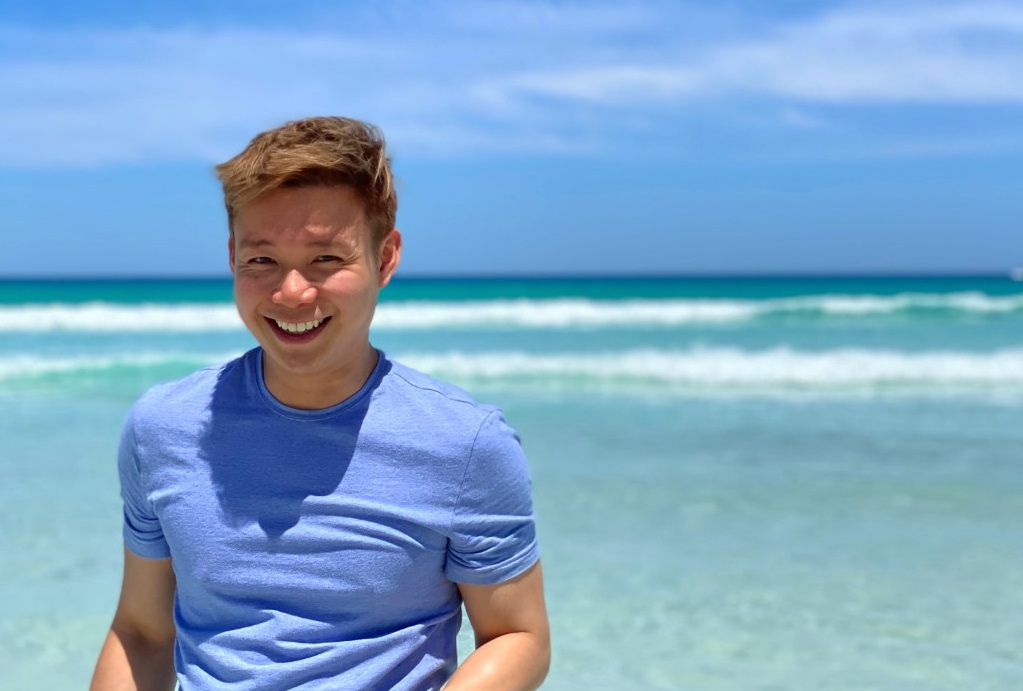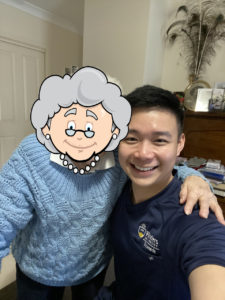
To acknowledge Allied Health Professionals Day, we spoke with PhD student and accredited dietitian Chad Han to discuss the importance of allied health in health care – and find out what he’s hoping to see soon on Netflix.
What does your role as an allied health professional involve?
In the context of health care, an allied health professional supports the medical and nursing team to deliver a ‘specialised’ service/therapy to a patient or client. My role as an allied health professional has evolved from providing acute care (such as medical nutrition therapy or education) to researching new ways that can optimise health services.
Instead of just delivering a service/therapy, such as diet, exercise or psychological support, an allied health professional actually works hand-in-hand with each profession. I used to work in the neurology/neurosurgical ward, where dietitians can be trained to perform a bedside swallowing test, so that referral to a speech pathologist can be made when necessary. Likewise, a speech pathologist can learn how to identify malnutrition risk and refer to dietitians when needed.
What journey brought you to this point in your career?
My interest in food and nutrition started when I was 15. I did a diploma course in applied food science and nutrition at a polytechnic in Singapore, instead of going to the equivalent of an Australian high school. After two years in the Singapore armed forces (a national service that all Singaporean boys have to go through), I pursued my undergraduate degree in nutrition and dietetics between 2011 and 2013 at Flinders. I then worked as a clinical and research dietitian in Singapore for about five and a half years before embarking on this PhD journey.
Where does dietetics fit into the allied health sphere? Why is it important for long-term health outcomes?

Food and nutrition are essential to life but are often taken for granted, which becomes clear when someone has to deal with a life-changing diagnosis. What if you were told you can never have ‘normal’ bread again? What if everything that sustains you is going to be delivered through a tube?
Dietetics reaches far beyond just slogans like “eat less salt, fat and sugar”, and far more than choosing between chocolate or coffee Sustagen for our patients/clients. It’s about supporting and empowering a person to achieve their goals, whether that is fitting into a favourite pair of jeans from 20 years ago, or making sure they don’t lose weight so they can continue with chemotherapy treatment.
Dietitians work in a team to support doctors, nurses and other allied health professionals because health is complex, and food is fundamental. Dietetics is still considered a young profession and I hope to it grow with research.
What is something you are most proud of?
I’m really proud of the students I mentor. I see them going places to reach their goals, and that really motivates me to keep moving forward. I’ve been blessed with good mentors through my degree and career so far, and I hope I provide my mentees with the same level of support.
I am equally proud of the projects I’ve been involved in, particularly my current PhD project, titled ‘INDEPENDENCE: INDividualised therapy for Elderly Patients using Exercise and Nutrition to reduce depenDENCE post discharge’. It’s very rewarding to conceptualise a health service, design and create it, and deliver it. Although it’s a pilot project, I have accumulated so many interesting stories that contribute to these important chapters of my life.
What does a normal day look like for you?
I either work on my PhD, then get on with part-time work (a mix of teaching/university residential coordinating/casual dietitian) and I try to get in some exercise at least 3-4 times a week. I highly recommend F45 at Brighton. I made this video for my family and friends to keep them updated with what I have been up to, which provides a pretty good idea of what my day-to-day routine is like.
What does Allied Health Professionals Day mean to you?
It is nice to be remembered. There’s Grey’s Anatomy, Scrubs and the Canadian TV show Nurses, but allied health professionals are often forgotten. So, Netflix, if you’re listening, it would be great to create a show on us too! Do you know that there are more types of allied health professionals that you can count with both your hands and feet? Exercise physiologist, physiotherapist, occupational therapist, audiologist, social workers, music therapists, dental hygienists and more.

